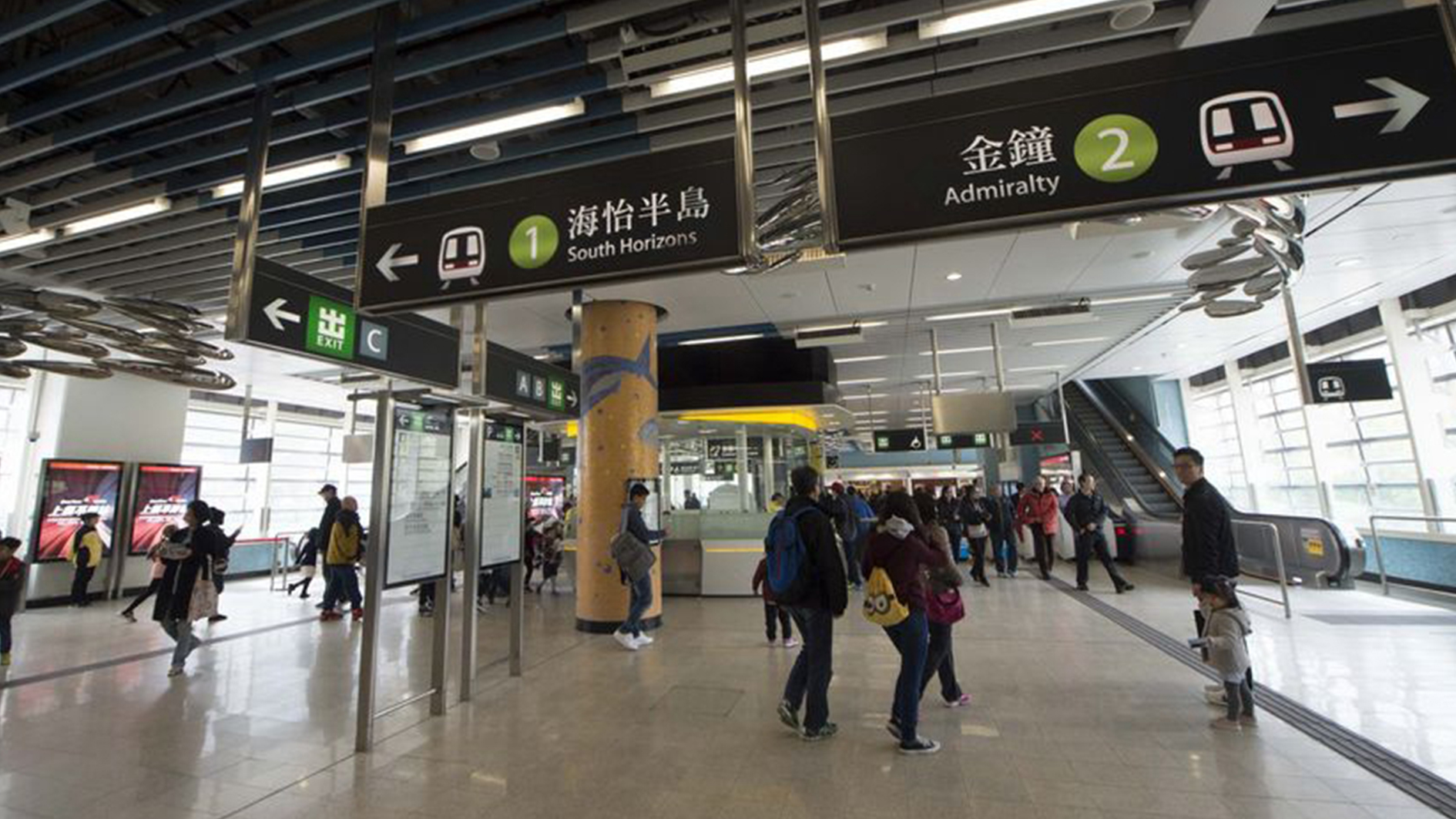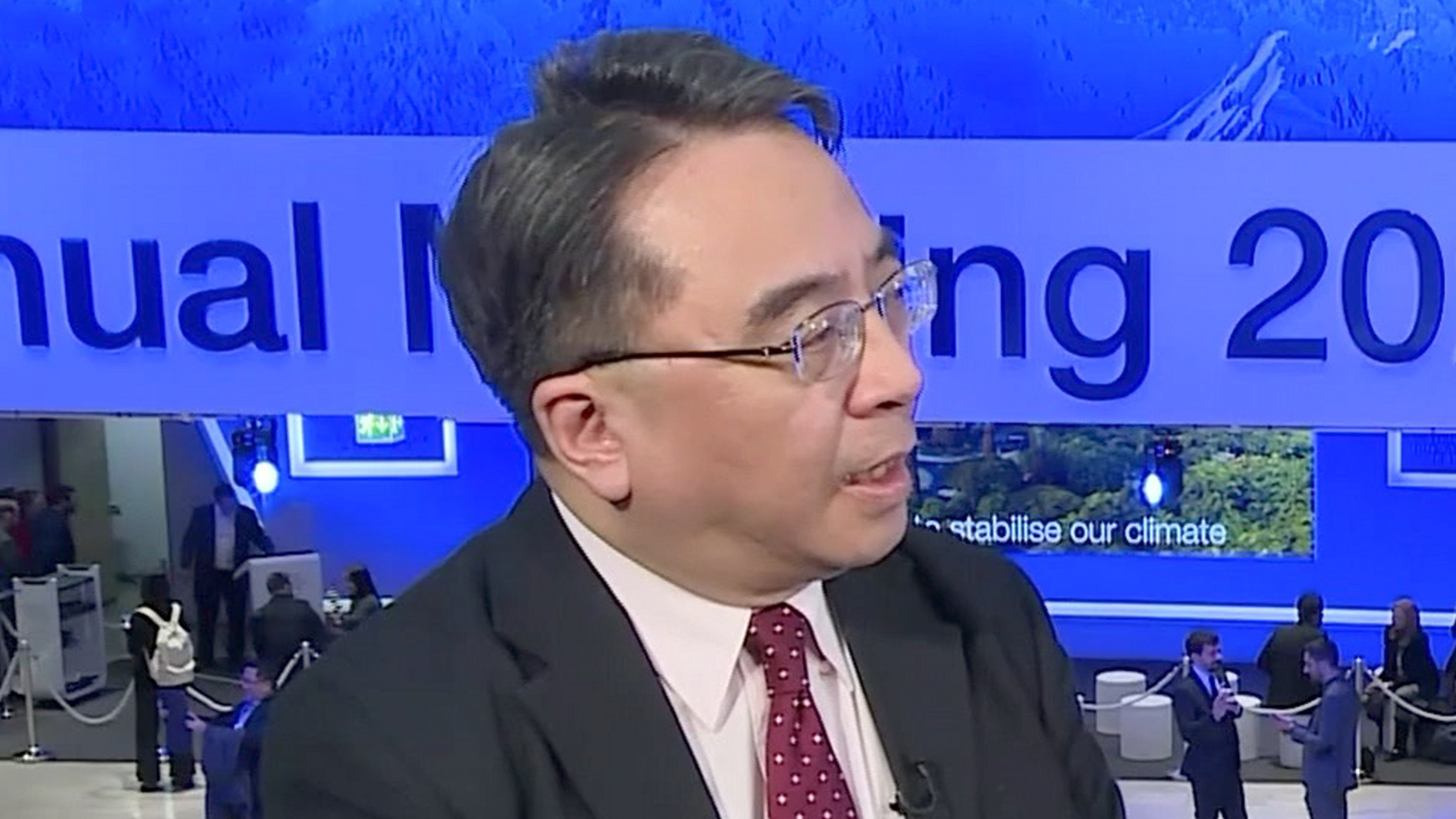02:22

In 2019, Hong Kong's rail service provider, MTR, suffered a loss of more than 1.6 billion HK dollars. Direct damages to equipment accounted for a third of that figure and loss of passengers resulted in the rest, MTR CEO Jacob Kam told CGTN Host Tian Wei in an exclusive interview conducted earlier this year.
As an essential part of Hong Kong's infrastructure, the MTR operates one of the busiest metro systems in the world. It is responsible for transporting over 5.7 million passengers on an average weekday, running more than 260 kilometers of rails in the city and employs more than 30,000 people.
Jacob Kam said their mission is to keep the city running, but they were challenged when protests risked the safety of the people as well as their properties last year. In one of the most violent incidents last August, more than 60 people were arrested at the busy Prince Edward and Mong Kok MTR stations.
Police said they had entered the station due to reports of rampaging protesters vandalizing ticketing machines, beating a group of elderly passengers with umbrellas and setting off a fire in the compartment. Besides, protestors carrying petrol bombs and lighters were also spotted.
In such situations, Kam said the MTR had to close down stations and suspend services, with the intention of preserving the system so that overall operations can be maintained. It's unfortunate that a mode of transportation had unwillingly become political, been accused of taking sides and, in the mind of rioters, deserved to be wrecked.
In terms of the rhetoric that MTR had come under fire for running train services that were perceived to assist violent rioters to escape the crime scenes, Kam said "it's a complete misunderstanding of what we did at that time." Kam explained that they had consistently worked with Hong Kong police to disperse crowds and prevent escalation of conflicts at stations. Therefore, when they ran extra trains to move people, they weren't able to tell who were rioters or regular passengers.
Since then, MTR has stepped up investment on security measures. According to Kam, the entrances and equipment at metro stations have been redesigned to reduce possible damages. Security forces have been expanded from just under 100 to over 1,600 personnel.
01:06

Apart from the social divisions that wrecked Hong Kong in 2019, the city is now faced with the impact of the COVID-19 pandemic. Having entered recession last year, Hong Kong's GDP slumped a record 8.9 percent year-on-year in the first quarter of 2020, with unemployment also rising to its highest point in more than nine years.
Kam said one of Hong Kong's competitive advantages is that it is a free and open society. However, some violent protesters have violated other people's right to express their opinions and crossed the line of legality by damaging properties or even physically harming others.
Last month, China's top legislature decided to roll out a natioanal security legislature for Hong Kong.
Jacob Kam had spent some time overseas before joining MTR in 1995. He said he had come back before Hong Kong's return to Chinese jurisdiction because he believed that a great future awaited Hong Kong. "I still have that expectation," said Kam. "We just need to go through this bad patch. We learn from that and we pick up ourselves and we move on."
World Insight with Tian Wei is an international platform for debate and intelligent discussion. It is the meeting point of both the highly influential and rising voices, facilitated by host Tian Wei. It provides nutrition to form your own thoughts and ideas through a 45-minute live debate and interviews.
Schedule: Monday-Saturday
Time (GMT): 1415, 2015
(If you want to contribute and have specific expertise, please contact us at opinions@cgtn.com.)